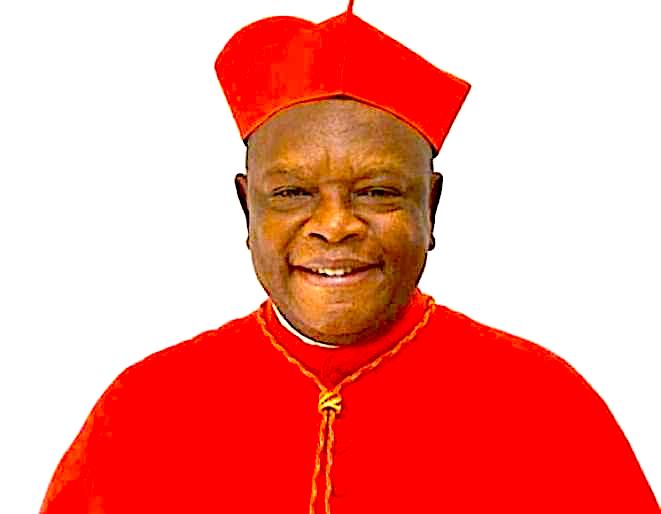SECAM: Bear Witness to Christ in Other Continents, Cardinal Urges Ahead of SECAM Day

The President of SECAM, Cardinal Fridolin Ambongo
Sr. Jecinter Antoinette Okoth, FSSA
In response to an encyclical letter by the late Pope Pius XII, which was written decades ago that bishops need “to face the challenges of the universal mission of the Church,” not only by prayers and assisting each other but also by making priests available to other continents, the president of the Symposium of Episcopal Conferences of Africa and Madagascar (SECAM) has echoed the same.
SECAM was established as the continental body of liaison, study, and consultation aimed to preserve, encourage, and promote communion, common action, and collaboration between all the Episcopal Conferences of Africa and Madagascar, and with the precise mission of evangelizing the continent and its islands.
Addressing the continent ahead of SECAM day slated for 28th and 29th July, to mark 55 years since its establishment, His Eminence Fridolin Cardinal Ambongo Besungu pointed out that the Catholic Church in Africa, which comprises about 18% of the Christians in the continent, “Was born from the preaching of foreign missionaries,” and it should therefore, take part in the evangelization of the world, especially the European continent.
“The Church in Africa is aware that she is called to bear witness to Christ not only on the continent because the Risen Lord also says to her: ‘You will be my witnesses to the ends of the earth,” The Archbishop of Kinshasa Archdiocese in the Democratic Republic of Congo (DRC) said in the statement shared with AMECEA Online Thursday, July 18, revealing that Africa should be considerate to send priests in other continents who are currently in dare need because of various challenges.
He explained, “As a gesture of recognition and gratitude, account should be taken of the European continent, whose missionaries have taken on the task of evangelizing the whole of Africa and which is now experiencing a decrease in personnel because of secularism that is driving more and more people away from the Church.”
Even though the Church in Africa is supplying missionaries to other regions of the world including diocesan priests, who make themselves available for limited periods as Fidei Donum, (i.e. Diocesan priests sent to help evangelize mission territories away from their home dioceses) the Cardinal said, “The same attention is requested for the missionary-poor areas within our continent, especially in the north and south of Africa.”
The Cardinal who is member of the Order of Friars Minor Capuchin (OFM Cap), underscored that the Church in Africa is a missionary Church, and the people can evangelize in other parts of the world since “Africa is where the Catholic Church is experiencing record growth.”
“The Catholic Church in Africa has taken root and is now an adult Church: most of the hierarchy in Africa now comes from Indigenous clergy, both secular and religious, and there is a growing number of African religious involved in leadership positions in these international missionary societies,” the Congolese Cardinal disclosed and expounded that the increasing number of African diocesan priests is making it possible for them to avail themselves as missionaries in other continents.
He added, “The African provinces of religious institutes of pontifical right, both male and female, have also seen an increase in members. The number of dioceses is increasing and each diocese has created regular diocesan structures: church buildings, educational establishments, health centres, religious institutes, seminaries, and religious formation centres.”
The Cardinal appreciates that the Catholic Church in Africa has been a champion of human development as the Church is seen to make up for State deficiencies, “without which there would be no life, no hope, and no future.”
“In the absence of State provision, the Church is concerned with the education and health of its people, providing training centres, hospitals, and health centres. The Church has been involved in the work of being the voice of the voiceless and advocating for the reduction or cancellation of the unjust debt burden of the African people,” Cardinal Ambongo pointed out and continued, “The Church in Africa is vibrantly building herself up as the Family of God and enriching herself with the experience of Small Christian Communities, which are the hallmark of the Church of Jesus Christ in Africa and its islands.”


